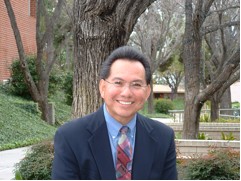I am in my 21st year of teaching; 14 of those years at Biola and seven at an urban middle school where I taught approximately 160 12 to 14 year olds for six hours a day, five days a week, eight months out of the year. No matter how you slice it, that is a lot of teaching!
Twenty-one years of teaching also represents a lot of “output” on my part — countless hours of instruction, assignments, and grades. It is interesting to note this degree of output since according to the Strengths Finder my number one strength is Learner, which is an “input” strength! But the fact is, I love learning and it is precisely this love of learning that led me into teaching.
However, the university environment can be challenging and sometimes poses a threat to “learning.” What do I mean by this? The spiritual writer, Henri Nouwen, in his book Lifesigns: Intimacy, Fecundity, and Ecstasy in Christian Perspective, reminds us that the word for “school” comes from schola, meaning “free time.” In this, Nouwen makes the point that schools, originally meant to interrupt the busyness of human existence and create space for the contemplation of the mysteries of life, have become places of “fierce competition” where the rewards go to those who “produce the most and the best.” And isn’t that the challenge? Universities meant for “quiet learning” have the potential to become anything but that.
So then, how can one guard against the tendency toward an emphasis solely on output and product and maintain balance with input, contemplation, and quiet learning? In answer to this question I offer a few suggestions. First, remain mindful that our mission of biblically centered education, scholarship, and service is as much about the kingdom of God and the great commission as it is about writing research papers and taking midterm exams. Here, we emphasize a holistic education that is as concerned with spiritual formation as it is with the development of the intellect. It is as much about entering into meaningful relationships with professors as it is simply taking classes from them. Therefore, students should immerse themselves in the total Biola experience and not be predominantly focused on producing “the most and the best.”
Second, a university education is as much about the journey as it is the destination, as much about the process as the product. This may sound like a cliché, but 10 years from now you may actually remember very little from a course lecture or assignment but remember for a lifetime a specific moment in chapel where you heard from God, a missions trip or service experience, a significant relationship that began here, or a life you touched with a word or deed. Finally, as necessary as it might be to do well in classes and graduate on time, it is very important to keep in mind that one’s identity and self-worth are not bound up in grade point average or in earning a graduate scholarship. Your true value and worth are found in Christ and in His opinion of you. If you keep these simple instructions in mind, you may not be able to completely guard against the tendency toward a one-dimensional education, but at least you will know there are other options available — if you choose to take advantage of them.







